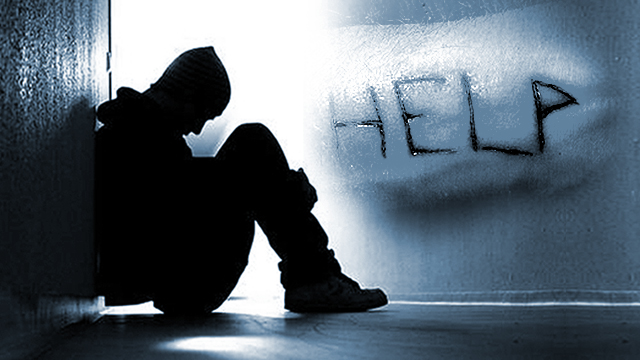BENEATH THE SURFACE: SUICIDE AWARENESS

BY CHRISTINA NAJJAR –  Numbers. In the day-to-day scheme of life – between nabbing that much needed latte before an 8 a.m., engaging in small talk with that person who has the escapingly ambiguous name, and excusing the tears in Organic Chemistry as sweat from the hike up Ag Hill- the concept of numbers seldom enters the mind. Yet, in today’s collegiate society, numbers constitute a student’s identity. Grade point averages, finances, and the amount of likes on Instagram establish the golden trio of priorities for the average undergraduate, as if four years spent slaving as a pre-medical undergraduate weren’t already abounding with stress. The line “You shouldn’t worry about your grades so much… and stop sniffling into that guide dog puppy” is probably familiar. Your bank statement declares the same number as your GPA, and HOPE is neither present in your Athena account nor in your emotional status. This crushing bleakness is only compounded by a sense of isolation when your inbox is empty save for the singular text that apologetically dejects your dinner invitation. These seemingly insignificant numbers have the great power to define an individual’s self-worth. They are the root of a stress-filled life, which unchecked, can breed depression- the primary cause of suicide.
Numbers. In the day-to-day scheme of life – between nabbing that much needed latte before an 8 a.m., engaging in small talk with that person who has the escapingly ambiguous name, and excusing the tears in Organic Chemistry as sweat from the hike up Ag Hill- the concept of numbers seldom enters the mind. Yet, in today’s collegiate society, numbers constitute a student’s identity. Grade point averages, finances, and the amount of likes on Instagram establish the golden trio of priorities for the average undergraduate, as if four years spent slaving as a pre-medical undergraduate weren’t already abounding with stress. The line “You shouldn’t worry about your grades so much… and stop sniffling into that guide dog puppy” is probably familiar. Your bank statement declares the same number as your GPA, and HOPE is neither present in your Athena account nor in your emotional status. This crushing bleakness is only compounded by a sense of isolation when your inbox is empty save for the singular text that apologetically dejects your dinner invitation. These seemingly insignificant numbers have the great power to define an individual’s self-worth. They are the root of a stress-filled life, which unchecked, can breed depression- the primary cause of suicide.
Statistics provided by the American College Health Association show that, excluding alcohol-related fatalities, suicide is the leading cause of death amongst young adults. Each year, 1,100 suicides take place on college campuses – that’s 7.5 students per every 100,000. Even more alarming, 1.5 out of every 100 college students have attempted suicide.
Students entertain the thought of taking their own life due to overwhelming feelings of inadequacy, entrapment, and predominantly, loneliness. Georgia primary care physician Dr. David Najjar explains, “In my experience, most potentially suicidal patients have clinical depression that is triggered by loneliness. Usually they’ve moved away from their family and friends for school, and they simply feel alone, like no one understands them. They crave their old emotional connections.”
College is a transitional period in a person’s life; everyone is bound to feel forlorn and adrift at some point. Unfortunately, this commonality has desensitized society to caring for those with untreated mental conditions. One in 12 students have a suicide plan; 10.3% of students reported seriously considering suicide in the past 12 months. With a student body composed of approximately 35,197 persons, this statistic relates that 3,625 fellow Dawgs may be at risk.
Warning signs to watch for:
- depression and sadness
- speaking or writing of death, especially in a detailed manner
- withdrawing socially and familially
- impulsive acts (particularly of rage or anger)
- substance abuse
- bipolar mood swings
- lack of interest in hobbies and other previous sources of curiosity
- confession of feeling trapped, guilty, or ashamed
Frequently after a suicide, people are shocked to discover that the victim thought themselves immutably despondent. When gazing in on their life, the golden trio appeared balanced. They were only taking 10 credit hours, or perhaps they didn’t have any reputably difficult classes. They could not be stressed about money already- loan repayment wouldn’t begin for at least several years. When going to their Instagram page, the biography composed of a Jimmy Buffett lyric about dancing in the rain and a sunflower emoji could not possibly be the mark of someone struggling under the burden of crushing desolation. As a community, it is our duty to expend the effort to look past this quantified façade of social, financial, and academic prosperity; if we battle our loved one’s depression alongside them, perhaps we may negate the source of loneliness itself. If you endeavor to provide comfort for someone struggling with suicidal thoughts or you are struggling with the idea yourself, listed below are some establishments that can offer guidance and encouragement:
Avenues of help and support:
- UGA Counseling and Psychology Services (CAPS): 706-542-1162
- National Suicide Prevention Lifeline: 1-800-273-8255
- Helpguide.org’s “Suicide Help” article which details a step-by-step process of coping with suicidal thoughts
- I’m Alive:An Online Crisis Network
- Hopeline: Kristin Brooks Hope Center’s “Get Help Now” resource offers suicide hotlines that specifically cater to veterans seeking peer support, women struggling with postpartum depression, graduate students, teens seeking counsel from fellow teens, and those who predominantly speak Spanish.
*If you have a passion for this topic, visit The Jed Foundation or the Suicide Prevention Resource Center to learn more, get involved, and donate.
